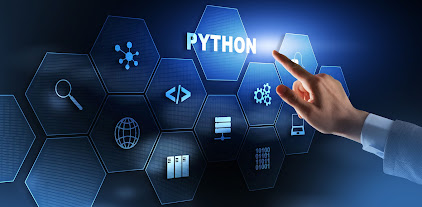How Long Does It Take to Learn Python?
Python has become one of the most popular programming languages in the world. Its readability, simplicity, and vast ecosystem make it the first choice for beginners and seasoned developers alike. Whether you're aiming to build a career in data science, web development, or automation, Python is a solid starting point.
But one question always arises: How long does it take to learn Python?
Let’s break this down step by step to help you understand how long it might take, what you’ll need to learn, and how to make the most of your time through practical, hands-on education.
Why Learn Python?
Before we discuss timelines, it’s important to understand why Python is worth learning:
Beginner-friendly syntax: Its code reads like English.
Wide range of applications: From automation scripts to AI algorithms.
In-demand skill: Python consistently ranks high in job postings.
What Affects Your Python Learning Timeline?
Several factors influence how quickly you can learn Python:
1. Your Background
If you have previous coding experience, you may learn faster.
Non-tech backgrounds might require extra time to understand foundational concepts.
2. Time Commitment
1-2 hours a day can help you reach beginner-level proficiency in 4-6 weeks.
Full-time learners may do so in less than 3 weeks.
3. Learning Format
Online class Python options, like guided programs or bootcamps, speed up learning by structuring the material.
Self-paced learners may take longer due to lack of structured guidance.
4. Goals and Specializations
Learning Python for automation is faster than mastering it for machine learning.
Phases of Learning Python
To provide a realistic timeline, let’s break Python learning into three core phases:
Phase 1: Beginner Level (4-6 Weeks)
Objective: Understand basic syntax and write simple scripts.
Topics Covered:
Variables, data types, and operators
Control structures (if, for, while)
Functions and modules
Basic input/output
Error handling
Hands-On Element:
# A simple number guessing game
import random
num = random.randint(1, 10)
guess = int(input("Guess a number between 1 and 10: "))
if guess == num:
print("Correct!")
else:
print(f"Wrong! The number was {num}.")
Phase 2: Intermediate Level (2-3 Months)
Objective: Build functional projects and use external libraries.
Topics Covered:
File handling
Regular expressions
Working with libraries (e.g., requests, pandas)
Object-Oriented Programming (OOP)
Simple GUIs using tkinter
Project Ideas:
Weather checker using APIs
To-do list application
Practical Tip: Take advantage of Python certificate programs that offer structured tasks and assessments.
Phase 3: Advanced Level (3-6 Months)
Objective: Gain domain-specific knowledge.
Specializations:
Data Science: Learn NumPy, pandas, matplotlib, scikit-learn
Web Development: Work with Flask or Django
Automation: Use Selenium, pyautogui
Real-World Use Case: Automate Excel reports using openpyxl, or build a Flask-based web app.
Learning Python Through Online Certification in Python
Online certification in Python helps bridge the gap between learning and real-world application. Most programs include:
Video tutorials
Coding exercises
Capstone projects
Assessments and quizzes
Many Python online certification courses are designed for all levels, offering step-by-step guidance through both theoretical concepts and practical exercises.
How Certification Programs Help Speed Up Learning
Structured Pathway
Python certification programs offer well-defined curriculums, which are critical for keeping learners on track.
Instructor Support
Interactive support helps resolve doubts and avoid roadblocks, keeping learning momentum intact.
Peer Collaboration
Community interactions in online class Python platforms allow learners to exchange ideas and collaborate on projects.
Real-World Projects
Most python certification programs include capstone projects that mimic real-life applications, helping learners gain confidence and experience.
Common Milestones and Timeline
Here’s a suggested timeline that combines learning with project-building:
Tools and Platforms for Hands-On Learning
You don't need fancy hardware or expensive tools. To get started:
Use online IDEs like Replit or install Python locally.
Explore GitHub for beginner project ideas.
Join discussion forums and coding communities.
Industry Statistics on Python Adoption
According to the TIOBE Index, Python has ranked as the #1 programming language multiple times.
Over 80% of data scientists report using Python in their daily work.
The demand for Python skills grew by 40% year-over-year, based on job listings.
Best Python Classes Online: What to Look For
Choosing the best python classes online involves evaluating:
1. Curriculum Coverage
Ensure the course covers beginner to advanced levels, including practical projects.
2. Instructor Credentials
Courses taught by industry experts or experienced developers offer more insights.
3. Certification Value
Opt for programs that offer recognized certifications upon completion.
4. Hands-On Practice
More coding = better retention. Look for platforms that include coding challenges.
5. Post-Course Support
Does the course offer resume-building, interview prep, or mentorship?
Real-Life Success Story
Amit, a marketing executive with no coding background, joined an online class Python course. By committing 1 hour per day, he built his first chatbot in 10 weeks. Today, he uses Python to automate data analysis tasks in his marketing job.
Online Certification in Python: Is It Worth It?
Absolutely. Here’s why:
Validates your skills to employers
Demonstrates commitment to learning
Builds a portfolio of real-world projects
Python certificate programs are ideal for structured learners looking to gain both knowledge and credentials.
Key Takeaways
Time to Learn: 4 weeks for basics, 3-6 months for specialization
Learning Mode: Online class Python programs offer structured and self-paced options
Real-World Use: From simple scripts to enterprise apps, Python covers it all
Certifications Help: Python online certification adds credibility and focus
Shaping Your Tech Future with Python
Python isn’t just a programming language it’s a career accelerator. Start your Python journey today with H2K Infosys and unlock real-world skills, expert instruction, and industry-recognized certification.


.jpg)
Comments
Post a Comment